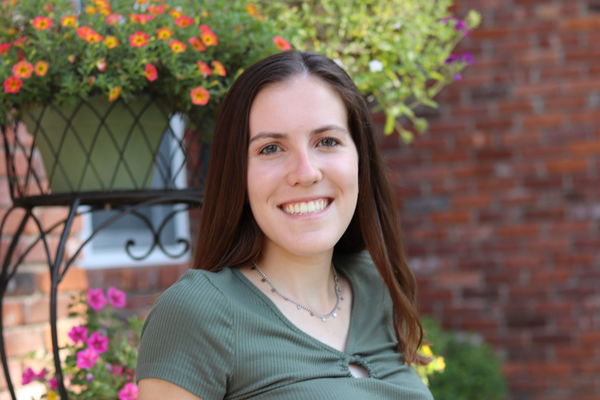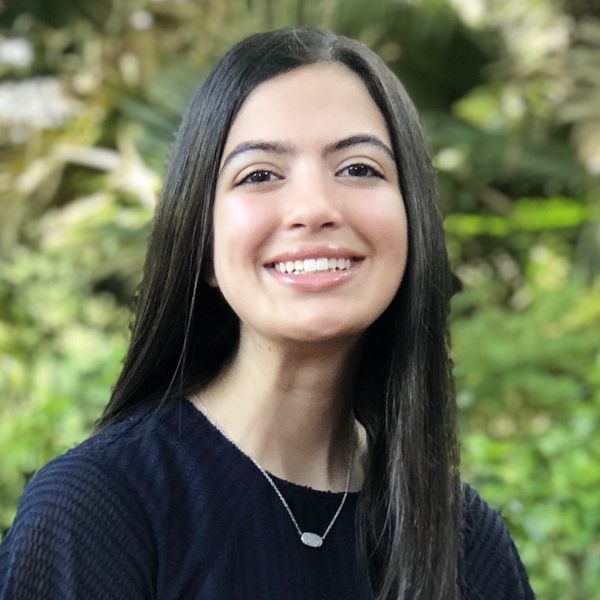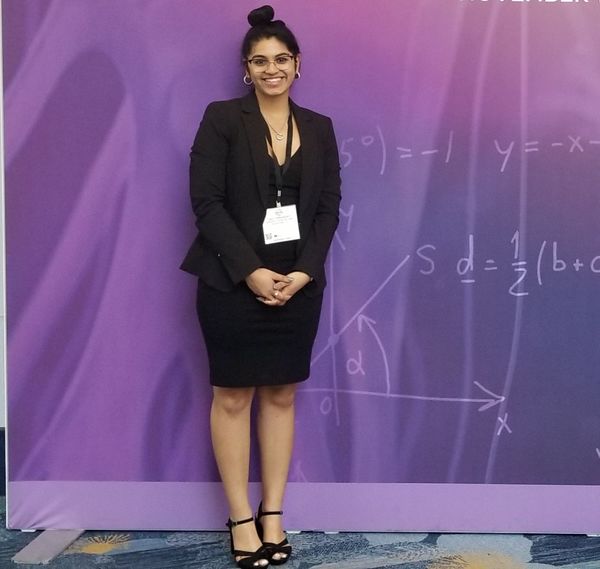
Isabel Snee, a junior majoring in neuroscience and behavior, knew in the spring that most summer undergraduate research opportunities had been canceled, but that didn’t deter her motivation to try to land one, anyway.
Snee, from Morristown, New Jersey, landed a part-time, eight-week job internship opportunity at the New Jersey Pediatric Neuroscience Institute by using some old-fashioned techniques during her job search. Snee was not alone in securing opportunities by pounding the pavement, either, with other students in the College of Science having similar success.
“I was real old-school,” Snee said. “Asking every doctor if they let people shadow.”
Snee eventually met Dr. Catherine Mazzola, a neurosurgeon affiliated with several hospitals and who founded the New Jersey Concussion Center and co-founded the New Jersey Craniofacial Center. After Snee shadowed once, Dr. Mazzola suggested that she apply for the internship. Though it initially was supposed to include time in an operating room, and in other clinical settings, the responsibilities changed because of COVID-19 and tasks pivoted more to assisting with writing papers and case reports.
The experience allowed her to submit three different case reports to medical journals and two literature reviews to other journals.
Dr. Mazzola and the work that she does with children has inspired Snee to strive toward a career as a neurosurgeon. Mazzola performed surgery on some of the surviving children of a May 2018 bus crash on I-80 in New Jersey that killed two and left others severely injured. Snee was present during a follow-up appointment for one of the children.
“It’s this amazing surgery where (Dr. Mazzola) put half this child’s skull in a cavity in the lower part of the torso, to allow the brain to heal,” Snee said. “That this child is still alive now and completely normal, with no underlying issues, is fantastic,” Snee said. “To see Dr. Mazzola play a role in that child’s life is inspirational.”

Sophomore Logan Barrios, a biological sciences major and theology minor from Marrero, Louisiana, participated in a research internship at the Louisiana State University Health Sciences Center, working with Rinku Majumder, as associate professor in the department of biochemistry and molecular biology. Barrios had been accepted to the summer program just as COVID-19 was causing shutdowns around the country, but was still able to complete the internship remotely.
“Obviously we didn’t have the lab experience portion, but it was nice to do data analysis and write up our results,” she said.
Barrios, who was one of 25 interns in the program, worked on a project about how estrogen, obesity, and proteins contribute to thrombosis, or blood clots.
Most lab meetings were online, with Mondays being reserved for meetings with mentors and postdoctoral researchers.
Using data from trials completed before COVID-19 struck, Barrios found that obesity and estrogen can decrease a level of a certain protein, which results in blood clots. Combining conditions increases the chances. She received third place in the internship group for her poster presentation, which was completed on Zoom.
“I used to have the misconception that all science was a lot of lab work, but through this I got to see how important data analysis is, and how important writing is as well,” said Barrios, who plans to attend graduate school for genetics or biomedical engineering after graduating from Notre Dame.
Her advice to other students who want to land internships, even for next summer? Don’t be shy.
“Don’t be afraid to send out as many emails as possible, because it’s important to have options,” she said. “In my case, this is the only program that ended up continuing after the pandemic, so just take advantage of all opportunities.”

Gail Fernandes, a senior majoring in biochemistry and minoring in theology, also decided to try for an internship in the city where she’s from—San Antonio, Texas— after her other opportunities were canceled. She knew a retired cardiac surgeon from her church, and asked him if he knew of any opportunities for research.
“He put me in contact with another cardiac surgeon, who put me on a project with one of his residents, and I was lucky to be able to work with her. In fact, I’m still part of their team at the lab,” Fernandes said, adding that her work was done remotely. “We finished the paper and sent the manuscript to the American Journal of Cardiology.”
Her research was done with the oversight of Dr. Anand Prassad at UT Health, and involved investigating studies concerning COVID-19 and cardiovascular research. Using information from clinicaltrials.gov, she showed how the studies were conducted and what the future implications of them will look like.
The main work involved going onto the database on the website and evaluating the trials, to guide other researchers in their own work.
“I’ve done other research at Notre Dame but both experiences were in a wet lab, and this was completely different,” Fernandes said. “But with this, I learned how to read papers, study them, and learn what the implications of the research are, rather than just pipetting solutions into Eppendorf tubes.
“It showed me that there are so many different facets of research.”
The work also cemented her interest in cardiology, and she plans to attend medical school after a gap year.
Like Snee and Barrios, Fernandes stressed that it’s best to ask around for opportunities during the pandemic, rather than wait for them to be advertised.
“Just go for it!” she said. “I’m sure many people have a network within their hometown, whether that be remotely or in a lab. Just keep asking, and don’t worry about bugging people about it at all.”
Originally published by at science.nd.edu on September 14, 2020.